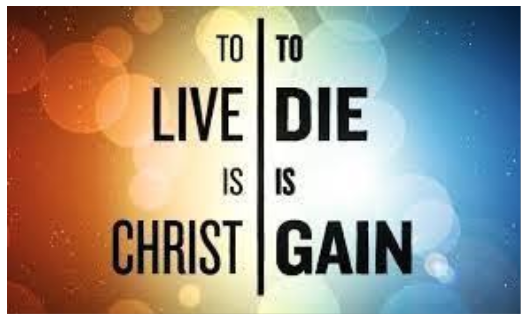In a recent post, we were discussing the reasonableness of believing in God or, at least in “a god”. We discussed that believing in god from a temporal perspective is, in the least, highly favored by math and physics: since time must have begun at some point for there to be”today”, the reasonable conclusion is that either an external entity created space and time or, from a deist point of view, space-time created itself: either conclusions point to an “un-caused cause”; some of us refer to that as “God”.
We also discussed how, as a response to this unassailable truth, atheist will say that although what happened before the Big Bang is currently unknown, they trust (or have faith) that science will eventually find an answer. Now, coming from individuals that pride themselves on being evidence-based, this statement and others like it fly straight in the face of what they’re trying to prove: that there is no superior “thing”. Unfortunately for them, they do believe, or trust, in something greater: in their case, it’s science.
Now, in reading the previous post, a friend commented on Twitter that “you don’t have to believe in God to have faith”! To that, I can only reply: absolutely false! In fact, the Bible teaches that each of us (believers) were given a measure of faith [Romans 12:3]. However, the verse applies to believers! The faith in this verse refers to how believers should be honest judges of themselves in accordance with this faith that was given to them by God: meaning, if you are an layman don’t think yourself a pastor!
You see, the world, like my atheist friend, mistakes and misuses the word “faith”; they’re actually referring to trust. You have heard, certainly, people say things like “I have faith in my family” or “I have faith in my children” or “the government”. In fact, what they’re saying is that they trust their family, their children, their government, etc.. Trust is based on evidence. For example: I trust there is a God, ( I have evidence of this fact), I have faith in His Word (for which I need no evidence). People trust their family to do right by them; once that trust is broken, it takes faith on their part to trust again; faith that things will go back to the way they were.
Faith, the Bible says “…is the substance of things hoped for, the evidence of things not seen.” [Hebrews 11:1]. The write of Hebrews makes it explicitly clear that faith is so much more than trust, it is the “assurance”, some translations read, of something not yet materialized: faith is evidence in something that is still far-off, not yet occurred. Faith is the Power of God’s promises; having faith, even as much as a mustard seed Jesus said, is the difference between being able to move the mountain or not!
You see, the term “faith” which unbelievers refer to and the world uses so interchangeably with “trust” lacks the power aspect that we as believers have come to expect and understand regarding the promises of God. For example, politicians make promises all the time and people put their trust in them and their promises all the time, unfortunately, they lack the power within themselves to enforce those promises on their own: they win elections based on promises and lose re-elections based on un-kept promises; spouses make promises to each other: to love, honor and cherish, and even those promises are too often only empty words. The faith placed in humans by humans is ephemeral, and unenforceable. Promise like “I will never leave you”, or “I will always take care of you” are emotional checks written by known fraudsters given to others who are they themselves hoping against hope that this time, it will be different.
Among humans, a promise made is as good as a promise broken, but the experience of a Born Again Christian is altogether different. The mature Christians build their lives around the promises of God, humanists build their lives on the promises of other people as well as the ones they make to themselves: I’m going to lose 20 pounds, I’m going to finish my degree; then, life and circumstance happen to us all. A stressful year at work and with no time to exercise, the treadmill collects dust; an unexpected baby on the way and the money that would have gone towards those last few credits now goes to replace the crib and stroller you threw out thinking you wouldn’t need anymore.
Don’t get me wrong, Christians make promises too and we take them very seriously, just like everyone else. In fact the Bible has some very strong advice: first on not making promises and second, on not breaking promises made, without being too wordy. It’s easier not to make a promise than to keep one but once the promise is made. In fact, the Bible teaches us [Matthew 5:33-37]:
33 “Again you have heard that it was said to those of old, ‘You shall not swear falsely, but shall perform your oaths to the Lord.’34 But I say to you, do not swear at all: neither by heaven, for it is God’s throne;35 nor by the earth, for it is His footstool; nor by Jerusalem, for it is the city of the great King.36 Nor shall you swear by your head, because you cannot make one hair white or black.37 But let your ‘Yes’ be ‘Yes,’ and your ‘No,’ ‘No.’ For whatever is more than these is from the evil one.
So, one would say “what does this have to do with what we’re talking about”? The answer is simple. If we who are believers are strongly discouraged from making promises, taking oaths, swearing allegiances and the like and we believe in God, what hope is there for the promises, oaths and sworn allegiances of those who don’t believe. Please don’t misunderstand, my claim is not that Christians are better suited but simply that if those who believe that there is a higher power don’t take it upon themselves to enter into such bondage because of the risk of breaking such oaths, what chance is there for those who don’t believe?
In the end, what we’re actually talking about is self-sufficiency. The faith of the atheist is built around the self-sufficiency of mankind: I will do this, I will do that! These are all promises made to oneself for oneself by oneself. It is at the center of the heart-cry of every Caesar that’s come down through the ages and at the core of self-indulgence: me! The Christian perspective is built antithetical to this where “me” is third, under others, second, and God, first. Here’s why:
16 And he told them this parable: “The ground of a certain rich man yielded an abundant harvest. 17 He thought to himself, ‘What shall I do? I have no place to store my crops. 18 “Then he said, ‘This is what I’ll do. I will tear down my barns and build bigger ones, and there I will store my surplus grain. 19 And I’ll say to myself, “You have plenty of grain laid up for many years. Take life easy; eat, drink and be merry.”’20 “But God said to him, ‘You fool! This very night your life will be demanded from you. Then who will get what you have prepared for yourself?’21 “This is how it will be with whoever stores up things for themselves but is not rich toward God.” [Luke 12:16-21]
For Christians, making plans is a part of life just like everyone else. However, the key differenve is this: when secularists make plans they just, as Christians would say, “name it and claim it”; they manifest their intentions and work towards them wholeheartedly. In the Christian worldview this desire to make plans and see them come to life is not less present or real, the difference is that they’ll add a modifier: “Lord willing”! Christians understand and have come to terms with their own inability to be self-reliant. The secularist will say, just like the Christian, “I want to buy a new house next year” or “I think I’ll publish a short novel”; both of those things are great ideas for someone that is looking for fulfillment, but the Christian knows who, ultimately, is in charge, and it’s not them.
The crux of the matter is this: the secularist, the Darwinist, the naturalist, the atheist doesn’t ultimately recognize any higher authority than themselves. That is exactly why they claim to have “faith” but place it in secular frames of reference: the marriage, the kids, the friendships, the career, the family, etc. When, all if these things, in the fullness of time frustrate and delude them, what is left, too often, is someone whom deep inside knows their is a Creator but is angry because of the circumstances of life: they would have wanted Him to show Himself in those situations to prove His existence. But, unfortunately, God is neither a pet nor He is mocked. Had He helped you, you would have just as easily assigned it to a chance occurrence or a change of heart in others: that would not have improved your condition, only strengthened your resolve. My dear friend, if you are reading this and recognize yourself in these situations, believe that you are not here by accident. God loves you and is talking to you; don’t harden your heart any longer. We encourage you to repeat this simple prayer:
Dear Jesus, I repent of my sins. Come into my heart, I make you my Lord and Saviour!
Friend, if you prayed that simple prayer, we believe you got “Born Again”. Find a good Bible-Based Church, keep God first place, and He’ll shows things you couldn’t even dream of!
God bless you!









